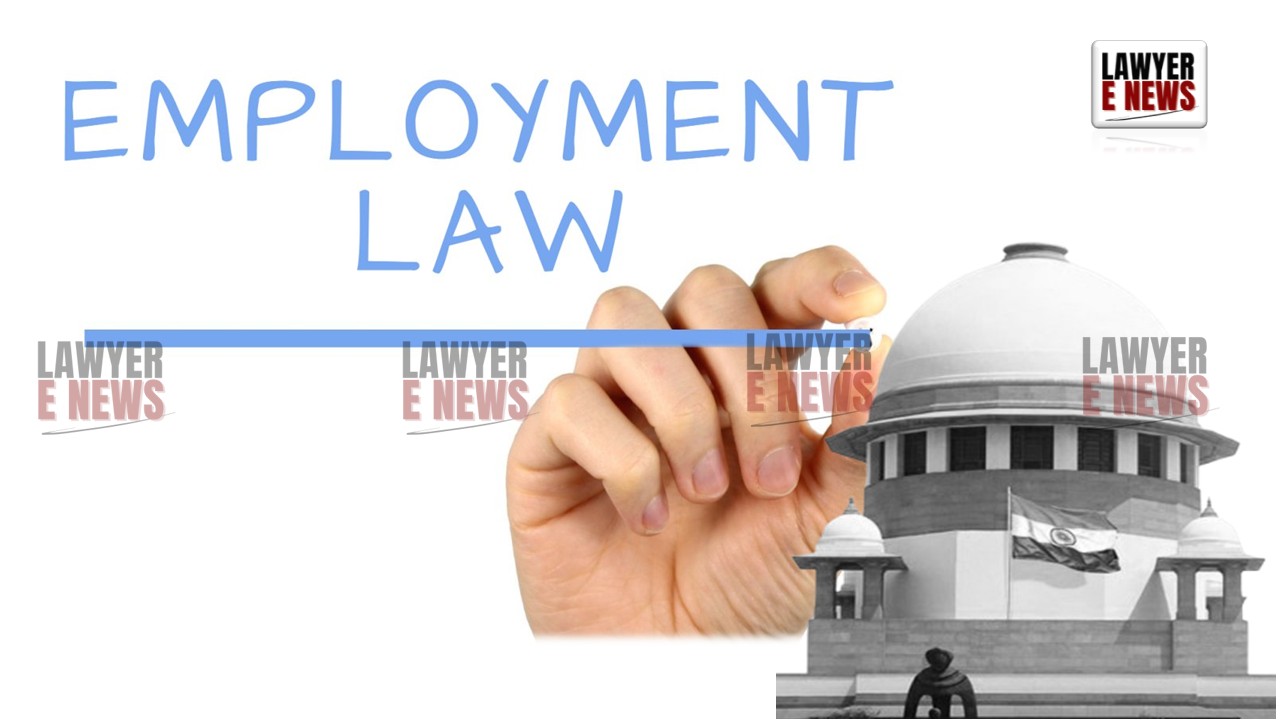-
by sayum
17 February 2026 5:39 AM



“An Aspirant Cannot Take a Calculated Risk of Flouting Clear Instructions and Then Claim Ambiguity” – In a landmark decision Supreme Court of India emphatically ruled that candidates applying under the Other Backward Classes (OBC) category must strictly adhere to the requirement of submitting caste certificates in the format prescribed by the recruitment notification. Deviation from this mandate, the Court held, is not a curable irregularity but a fatal defect.
The judgment authored by Justice Dipankar Datta, on behalf of a Division Bench including Justice S.C. Sharma and Justice P.B. Varale, settled a frequently arising issue across public recruitment processes: whether a candidate belonging to a reserved category, who fails to produce the caste certificate in the prescribed format, can later seek relaxation or correction under equitable principles.
“Uniformity in Recruitment Is Not Optional—It Is the Essence of Equality Under Article 14”
The genesis of the controversy lies in the 2021 recruitment notification issued by the Uttar Pradesh Police Recruitment and Promotion Board (UPPRPB) for the posts of Sub-Inspector (Civil Police), Platoon Commander, and Fire Officer. Clause 5.4(4) of the notification categorically stipulated:
“If the candidates belonging to other backward class category do not submit the certificate in the prescribed format-I/ within prescribed period or if they submit the certificate of Other Backward Class category valid for the services of Government of India, they will be treated as candidates of unreserved category.”
Despite this express requirement, both appellants—Mohit Kumar and Kiran Prajapati—submitted certificates in formats meant for Central Government services. Mohit, scoring above the OBC cut-off but below the general cut-off, was denied OBC benefit. Kiran too faced similar disqualification.
Their plea: the format difference was only technical and did not affect the substance of their claim—they were undeniably members of an OBC community.
The State’s defence: the requirement was non-negotiable and central to verifying creamy layer status as per State rules—not merely community membership.
“Once the Process Begins, There Can Be No Elasticity in Compliance—Rule of Law Demands Consistency”
The Supreme Court decisively rejected the notion that such procedural compliance was a mere formality:
“If a candidate does not make any such effort and takes a calculated chance of selection based on his own understanding, or the understanding of someone else who guided him, the courts should be loath to entertain such plea of ambiguity.”
The Court held that all candidates were equally bound by the notification. No latitude could be extended post facto, simply because the candidate’s caste was otherwise eligible.
“There cannot be different yardsticks for different sets of aspirants. Equal treatment in recruitment is not merely a constitutional promise under Article 14, but a structural necessity.”
In doing so, the Court not only overturned the High Court’s direction to consider Kiran Prajapati as OBC but also upheld the rejection of Mohit Kumar’s claim.
“Caste Alone Does Not Confer Eligibility—Certificate Format Is the Gateway to Reservation Benefits”
Relying on precedent, the Court reinforced that eligibility under a reserved category depends not only on belonging to that community but also on producing certification in accordance with statutory and administrative requirements.
Referring to the case of Registrar General, Calcutta High Court v. Shrinivas Prasad Shah (2013) 12 SCC 364, the Court noted: “A person who claims the benefit of reservation must be certified to be eligible by the competent authority in the prescribed format. The burden is on the candidate to comply, not on the administration to accommodate.”
“Judicial Discretion Cannot Override Administrative Uniformity”
The appellants tried to rely on High Court orders in similar cases where relief had been granted. The Court categorically rejected this plea, observing: “Dismissal of Special Leave Petitions without a reasoned order does not confer precedential value. These are at best decisions on facts, not binding norms.”
In essence, the Court fortified the importance of administrative integrity and discouraged candidates from circumventing clear directions through sympathetic pleas.
The Supreme Court concluded by dismissing Mohit Kumar’s appeal and allowing the State’s appeal against the order in favour of Kiran Prajapati. Both candidates were held ineligible for OBC benefits due to their non-compliance with Clause 5.4(4).
“An aspirant must either fully comply with the process or suffer the consequence of its deviation. Judicial compassion cannot extend to rewriting recruitment terms, for that would unravel the uniform fabric of competitive merit.”
Date of Decision: May 15, 2025
